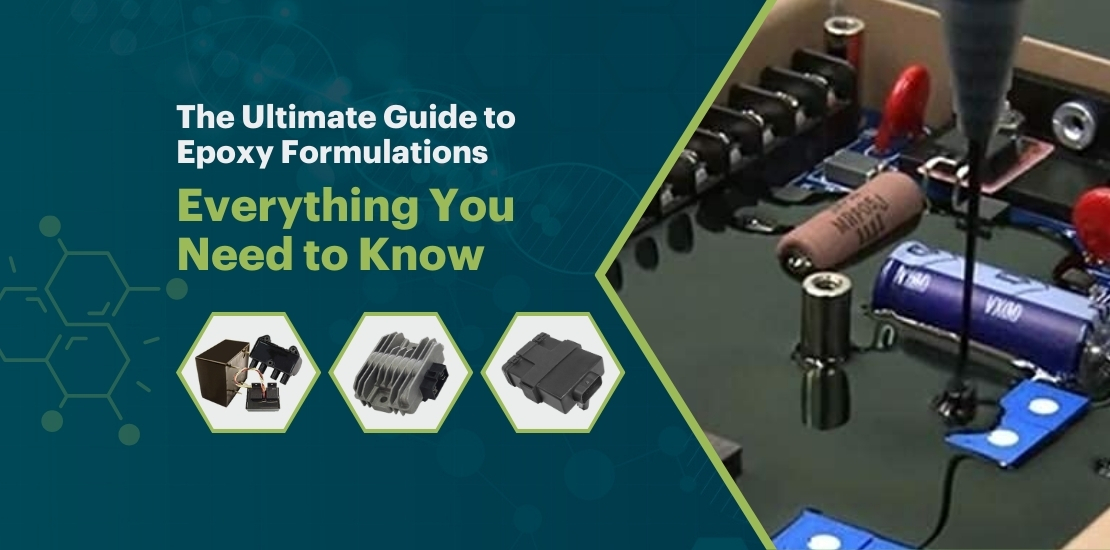The Ultimate Guide to Epoxy Formulations: Everything You Need to Know
- February 10, 2024
- Posted by: veeyor@dmin
- Category: Uncategorized

Epoxy formulations play a crucial role in various industries, including automotive electronic components, transformer manufacturing, and capacitor production. These industries rely on epoxy resins for their exceptional bonding properties, electrical insulation, and resistance to harsh environmental conditions. In this comprehensive guide, we’ll delve into everything you need to know about epoxy formulations, addressing the typical questions that buyers from these industries may have in mind.
Understanding Epoxy Resins:
Epoxy resins are thermosetting polymers known for their excellent adhesion, mechanical strength, and chemical resistance. They consist of two components: the epoxy resin and a hardener or curing agent. When these components are mixed together, a chemical reaction occurs, leading to the formation of a cross-linked network that provides the desired properties.
1. Application Specificity:
- Identify the specific requirements of your application, such as electrical insulation, thermal conductivity, or chemical resistance.
- Choose an epoxy compound tailored to meet these requirements, ensuring optimal performance and durability in your intended use case.
2. Curing Properties:
- Evaluate the curing time and temperature needed for the epoxy compound.
- Consider the production schedule and environmental conditions in which the curing process will occur to minimize production time and maximize efficiency.
3. Compatibility with Substrates:
- Ensure compatibility between the epoxy compound and the substrates it will bond to or coat.
- Conduct compatibility tests or consult with the manufacturer to verify adhesion and compatibility with different materials, including metals, plastics, and composites.
4. Environmental Considerations:
- Assess the operating environment in which the epoxy compound will be used, including temperature variations, exposure to chemicals, and UV radiation.
- Select an epoxy compound that offers resistance to environmental factors to ensure long-term stability and performance.
5. Mechanical Properties:
- Consider the mechanical properties required for your application, such as tensile strength, flexibility, and impact resistance.
- Choose an epoxy compound with the appropriate mechanical properties to withstand the stresses and strains encountered during use without compromising performance.
6. Regulatory Compliance:
- Ensure that the epoxy compound complies with relevant industry standards and regulations, such as RoHS (Restriction of Hazardous Substances) or REACH (Registration, Evaluation, Authorization, and Restriction of Chemicals).
- Verify that the epoxy compound meets safety and environmental requirements to mitigate risks and ensure regulatory compliance in your application.
By considering these six key points—application specificity, curing properties, compatibility with substrates, environmental considerations, mechanical properties, and regulatory compliance—you can make an informed decision when selecting an epoxy compound for your specific needs.
Veeyor is a leading supplier and manufacturer of epoxy systems and formulations in India. If you are looking for a tailor made systems developed to meet specific requirements get in touch with our experts
